Touring the line of fire
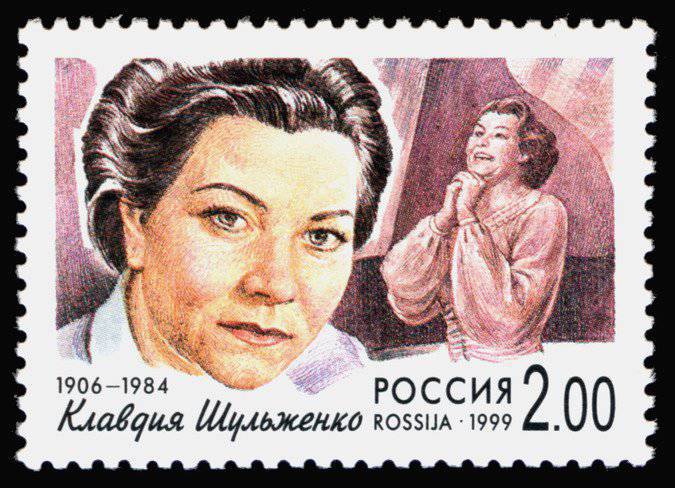
The front merits of Claudia Shulzhenko
Prima Soviet pop gave more than five hundred concerts for the blockade, and on the very first Victory Day it was awarded the Order of the Red Star. Not for the quantity, but for the feat. This young woman went to the front hundreds of times, and the Nazis hunted the voices loved by the people as much as the scouts. Shulzhenko risked her life to sing for the soldiers.
She performed her hit on the blue handkerchief for a long time in military uniform, until the front-line soldiers, exhausted by their beauty and peaceful life, cautiously asked her to wear a concert dress. Since then, Shulzhenko has begun to carry a suitcase full of clothes. During the bombing from the air, she pressed him to her and shouted: “Only not in dresses, a fascist bastard! Just not in dresses! ”After the war, Claudia had the reputation of being a real fashionista. She loved life in abundance and comfort, but never was capricious, squeamish and overly tender:
“There was a case: when we performed in an open stadium, a shower poured out suddenly during her singing. They hurried to her with an umbrella. She showed with her hand and glance:“ Stop! ”And continued her performance. And behind her were singing“ Pesnyary ”, they and it was inconvenient to behave in some other way ... "- from the essay" The Power of Art. A song as a tribute to the people, life as a fight, love as a song ".
There is a legend that once Shulzhenko's song saved a whole class of children, who, along with the teacher, found themselves in the firing line and sat down in a trench. In the smoke, they could not make out where their own, and where others were, and suddenly, “Blue Handkerchief” sounded through the noise of the cannonade. The teacher led the wards to the voice and led to the Soviet trenches. Someone is still tying a blue handkerchief on Shulzhenko's grave at the Novodevichy cemetery.
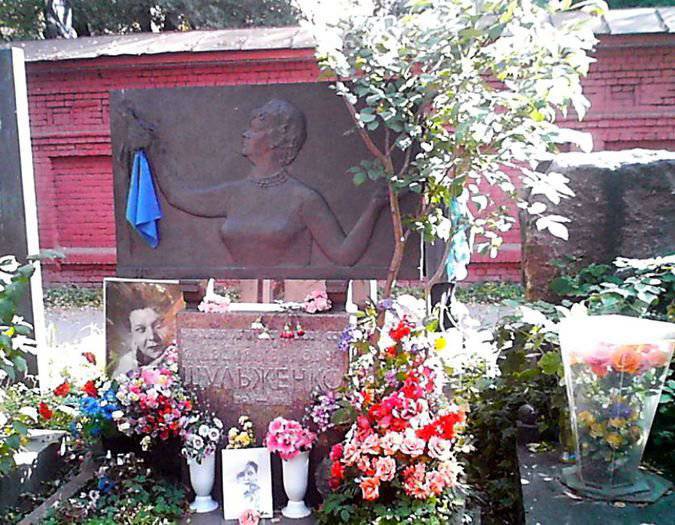
One day, after a speech in a military hospital, leaving the ward, Claudia heard a weak and joyful: "Kunechka ..." That was her name, Ivan Grigoriev, a civilian husband, with whom she fell in love with another seventeen-year-old girl. She lived with him for a long time and even wore a ring on her ring finger. Kunya left. The wounded tanker Grigoriev died six hours later. At home, singer Claudius Shulzhenko was met by his lawful husband and father of Igor’s son Vladimir Coralli.
"Shulzhenko gods punished: All husbands, she - Coralli"
Marriage with a peer Vladimir was a creative union. Vladimir Koralli with the real name Kemper was known as a courageous man, who would later become Claudia herself. Throughout the Civil War, he performed in villages and military echelons for the edge of bread, beat tap dance and sang ditties, and when Shulzhenko stormed into Kharkov with his concerts, he sang in the variety theater. Having become acquainted, the young people realized that together they are better.
Coralli made a name for himself on the pop production “The Map of October”, and then began to collaborate with the orchestra of Alexei Semenov, in which Claudia’s talent was revealed. After a long tour in 1935, the singer first recorded in the studio and replicates her talent for millions of listeners on gramophone records.
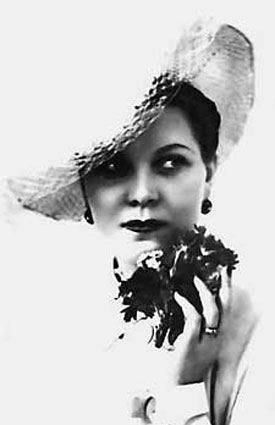
Later, the famous singer Claudia discovers that Coralli is cheating on her, the people compose a title epigram about her, and she is in love with her husband's young composer Ilya Zhak. The latter wrote her famous song "Hands". Coralli arranges loud scenes of jealousy: then at dinner he would suddenly tear off the tablecloth with dishes from the table, then he would cut himself with a knife ... He said this to Jacques:
“I created Shulzhenko as a singer and will not allow anyone to take her and steal the ready-made one!”
Having lived with Claudia for a quarter of a century, he still filed for divorce, although he later admitted that without her he was as unbearable as he was with her.
When sharing property, Coralli exchanged one of four rooms in their apartment, and a family with a small child settled there. These people hated Claudius. At that time, she was already fifty, she called her friend with horror and complained about her life: she didn’t come up to the stove for ten years, I live in a communal apartment, what should I do?
In the meantime, someone sent her postcards from different parts of the Soviet Union on various occasions: to congratulate on Miner's Day, for example. And at the end is always the signature: "GE." ...
Star from the Kharkov slums
On the stage of the Mariinsky Theater, a beautiful Khokhlushka from a close wing in Kharkov flashed for the first time at its twenty-two. This is my father's merit: the owner of the thoracic baritone and the lover of singing himself, from an early age, with his vociferous girl, she arranged for her yard concerts. Just like that, on chairs and buckets, if only people would hear his talented Claudia, and she fell in love with singing and stopped dreaming about the theater.
“Parents, having noticed my musical abilities, identified me to Nikita Leontyevich Chemizov, a professor at the Kharkov Conservatory, an amazing teacher and a kind person. He studied music with me and gradually taught singing. “You are happy,” he said, “you have a voice by nature, you only need to develop and improve it.”
A flattering comparison with the queen of French chanson Edith Piaf was awarded to many of our artists: the versatile person Maya Bulgakov, and the innovator Edita Pyekha, who was the first to remove the microphone from the stand, and Georgian Tamara Gverdtsiteli, and the modern young talent Pelagia ... So they called Claudia Shulzhenko. although the luxurious vocal she had. From the very beginning, her songs were loved for her lively intonation and soulfulness. Like Piaf, Shulzensko only suffered from sudden memory lapses. It was not a brute force medication, like the French chansonnier, but aged. At her anniversary concert in 1976, she forgot the words of one of the most popular songs - “Three Waltzes”. Claudia was frightened, began to improvise ... the words were remembered and the song was dopeta, but she never performed the Three Waltzes anymore.
Despite all the hardships of life, the hohlushka Shulzhenko has always been a proud bird. In 1953, she refused to speak to Stalin.
“According to the Constitution, I also have the right to rest,” she said to the general’s adjutant. From the effects of this outburst, only Stalin’s death saved her.
Shulzhenko did not seduce the role of the court singer, and the relationship with the powerful of this world was unimportant — with everyone except the countryman Brezhnev, who always welcomed her with the words: “Oh, hello, Ukrainian!”
The Soviet pop star was not even friends with the recognized tyrant, the then Minister of Culture, Ekaterina Furtseva. Once Claudia Ivanovna sat in her waiting room for an hour, but everyone could not receive her. Then she entered the office and said Furtseva:
“Madam, you are badly brought up,” and slammed the door.
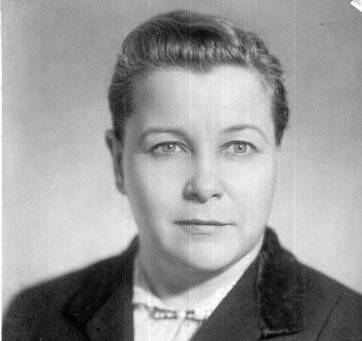
Furtseva did not let such things go; these words were remembered by her for the rest of her life. At a concert of Shulzhenko, she defiantly got up and left the hall, and a few years later, at the request of Klavdiya Ivanovna to improve housing conditions, she replied: “You have to be more modest. We have a lot like you. ”
Claudia Ivanovna’s conditions really were not the best. People's Artist accustomed to luxury, to fresh strawberries on the table, and then a pension of two hundred and seventy rubles. Shulzhenko sold her jewelry and antiques. When she last went to the Clinical Hospital in 1984, the only valuable thing left at home was a mahogany sofa and a Shostakovich grand piano, which he lost in cards.
Young artists helped Shulzhenko to survive. She did not take the money, but took the gifts. From Kikabidze - high-quality cosmetics, and to be painted lady at all and for all times considered it her duty. Kobzon gave her a blanket.
Like all the old ladies, Claudia Ivanovna appreciated the attention and loved to tell her stories. Young singer Piekha and Pugacheva communicated with her then. Alla Borisovna sometimes imperceptibly left Claudia Ivanovna money under a napkin in the kitchen, and then listened to Shulzhenko’s complaints about a bad memory: I don’t remember where I’m putting money on ...
The devil contacted the baby
Mysterious G.E. turned up in 1956 year. Rather, it was announced. The friends tried to bring Shulzhenko out of a difficult emotional state and
found the address of George Epifanov.
Georges fell in love with his clave voice in 1940, a year before the war. Finishing Film Institute, bought a gramophone, began to collect records and once heard "Chelita". Just like in the movies. Since then, he constantly found out in music stores whether the new album by Claudia Shulzhenko had appeared. Sellers recognized him by sight. In war, he worked as a war correspondent. He never hid from bullets, and he was often asked: “Zhora, where do you go all the time?”. He laughed: “They won't kill me! I love such an amazing woman ... "
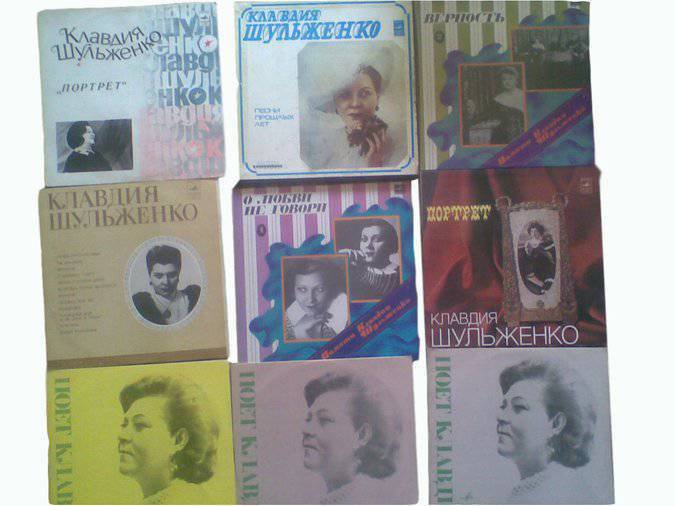
With his letters, he was so insistent that even Shulzhenko Coralli’s husband liked this, and he told them to take care of them. The cameraman was younger than the pop diva by twelve years. When they finally met, Claudia said:
“Now I will show you something,” and took out a pack of letters. - Learn? From everywhere, even from the Arctic and the Karakum - and where did you find the mailbox there? Well, that's what, Georges. You already either leave or stay. Georges stayed.
“We became spouses before God and people,” he recalled. “I couldn’t believe my happiness at all, it always seemed to me that it’s a dream come true. With it I learned what paradise is. Nature created it as an amazing, unique creature. Alien ! "
Later, this couple also sold out. For a full ten years, but once Klavdiya Ivanovna again saw him in the front row at her concert and from the stage said: “Georges, forgive me. Come back, I'm so lonely without you. "
They were happy until the seventeenth of June 1984, when the people's artist was gone.
Claudia once told her accompanist that she was an era in Soviet culture. He told her that only the people can judge this. “People may forget,” she said. But the people did not forget. To this day, Kharkiv residents honor the memory of the fearless singer, a museum is opened in her honor and the Shulzhenkovskie festivals are held every year.
Information